Tumor Lysis Syndrome Review
Tumor lysis syndrome review. Therefore a lack of awareness regarding TLS in CRC could lead to significant morbidity and mortality. The tumor lysis syndrome is the most common disease-related emergency encountered by physicians caring for children or adults with hematologic cancers. Tumor lysis syndrome TLS is a life-threatening oncologic condition that is most commonly linked with hematologic malignancies and uncommonly seen in solid tumors including colorectal cancer CRC.
Guidelines for the management of pediatric and adult tumor lysis syndrome. Tumor lysis syndrome TLS is an oncologic emergency frequently encountered in clinical practice. Tumor lysis syndrome can occur as a consequence of tumor targeted therapy or spontaneously.
It can also occur in patients receiving steroids hormonal therapy targeted therapy or radiation therapy. Health Canadas review of the available information concluded that there may be a link between Opdivo used alone or in combination with Yervoy and the risk of autoimmune hemolytic anemia aplastic anemia cytokine release syndrome and tumor lysis syndrome. Tumor lysis syndrome can occur as a consequence of tumor targeted therapy or spontaneously.
5-8 The tumor lysis syndrome occurs when tumor. Recognition of risk factors monitoring of at-risk patients and appropriate interventions are the key to preventing or managing T. A clinical review Tumor lysis syndrome is an oncometabolic emergency resulting from rapid cell death.
Tumor lysis syndrome is an oncometabolic emergency resulting from rapid cell death. TLS can occur spontaneously before cancer treatment but is more common within a week of starting treatment. Assessment of tumor lysis syndrome Rapid breakdown of tumor cells with leakage of intra-cellular content leads to a classic tetrad of metabolic derangement.
5 Laboratory tumor lysis syndrome. The tumor lysis syndrome is the most common disease-related emergency encountered by physicians caring for children or adults with hematologic cancers14 Although it. Tumor lysis syndrome TLS is a life-threatening oncologic emergency that occurs when cancer cells break down either spontaneously or after initiation of cytotoxic chemotherapy and release their intracellular contents into the bloodstream.
Tumor lysis syndrome is a clinical condition that can occur spontaneously or after initiation of chemotherapy-associated with the following metabolic disorders. Tumor lysis syndrome TLS is a life-threatening oncological condition that is typically characterized by metabolic derangements that are often labeled as an acute kidney injury.
Rasburicase in tumor lysis syndrome of the adult.
Increased nucleic acid breakdown and overwhelming purine catabolism result in hyperuricemia which is the hallmark of TLS. Increased nucleic acid breakdown and overwhelming purine catabolism result in hyperuricemia which is the hallmark of TLS. Abnormality in two or more of the following occurring within three days before or seven days after chemotherapy. Tumor lysis syndrome TLS is an oncologic emergency that is caused by massive tumor cell lysis with the release of large amounts of potassium phosphate and. Tumor lysis syndrome TLS is a life-threatening oncological condition that is typically characterized by metabolic derangements that are often labeled as an acute kidney injury. Guidelines for the management of pediatric and adult tumor lysis syndrome. Rasburicase in tumor lysis syndrome of the adult. A systematic review and meta-analysis. 1-4 Although it develops most often in patients with non-Hodgkins lymphoma or acute leukemia its frequency is increasing among patients who have tumors that used to be only rarely associated with this complication.
Increased nucleic acid breakdown and overwhelming purine catabolism result in hyperuricemia which is the hallmark of TLS. TLS is not limited to patients receiving traditional chemotherapy. Tumor lysis syndrome TLS is an oncologic emergency that is caused by massive tumor cell lysis with the release of large amounts of potassium phosphate and. Guidelines for the management of pediatric and adult tumor lysis syndrome. It can also occur in patients receiving steroids hormonal therapy targeted therapy or radiation therapy. Therefore a lack of awareness regarding TLS in CRC could lead to significant morbidity and mortality. Clinicians should stratify every hospitalized cancer patient and especially those receiving chemotherapy for the risk of tum.


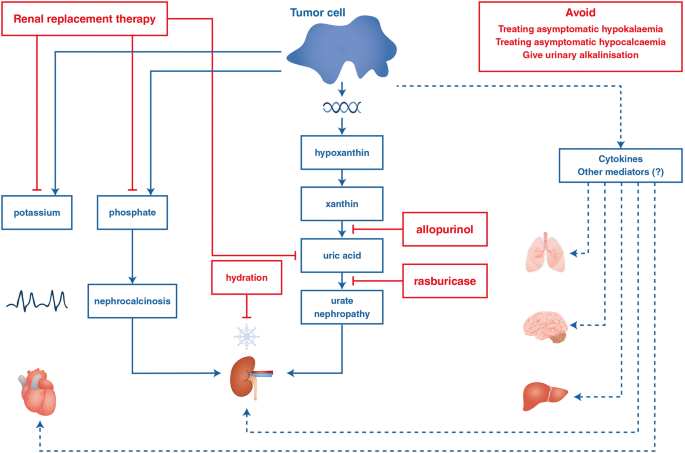

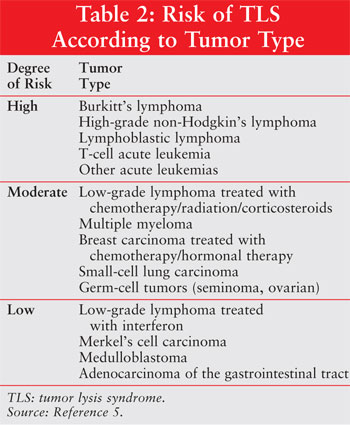





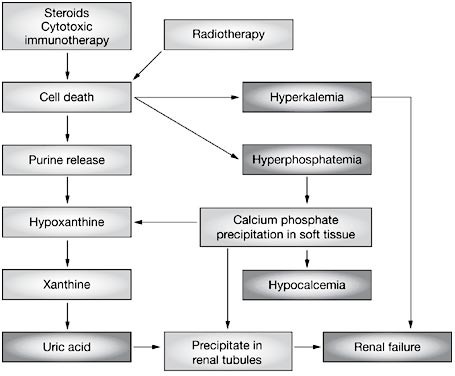





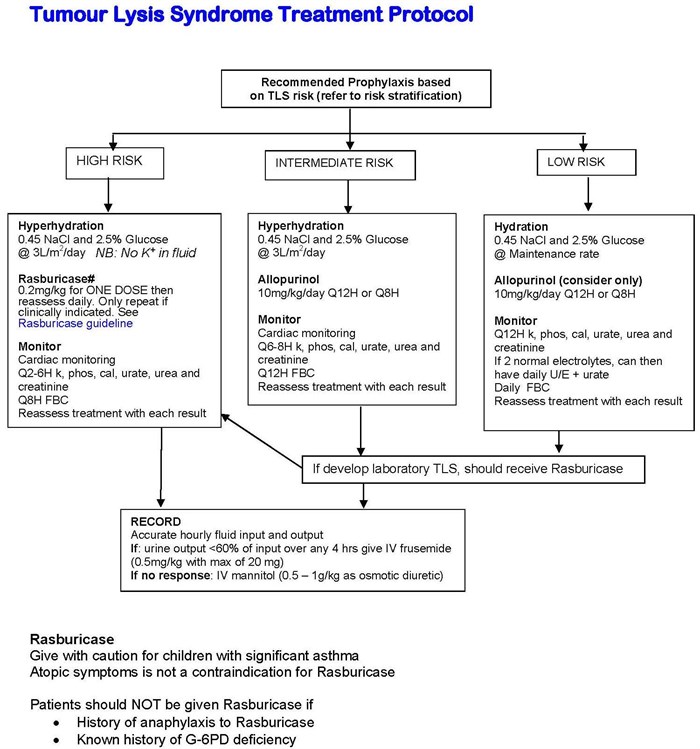
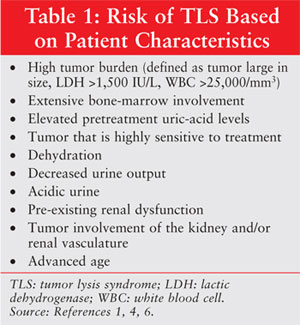






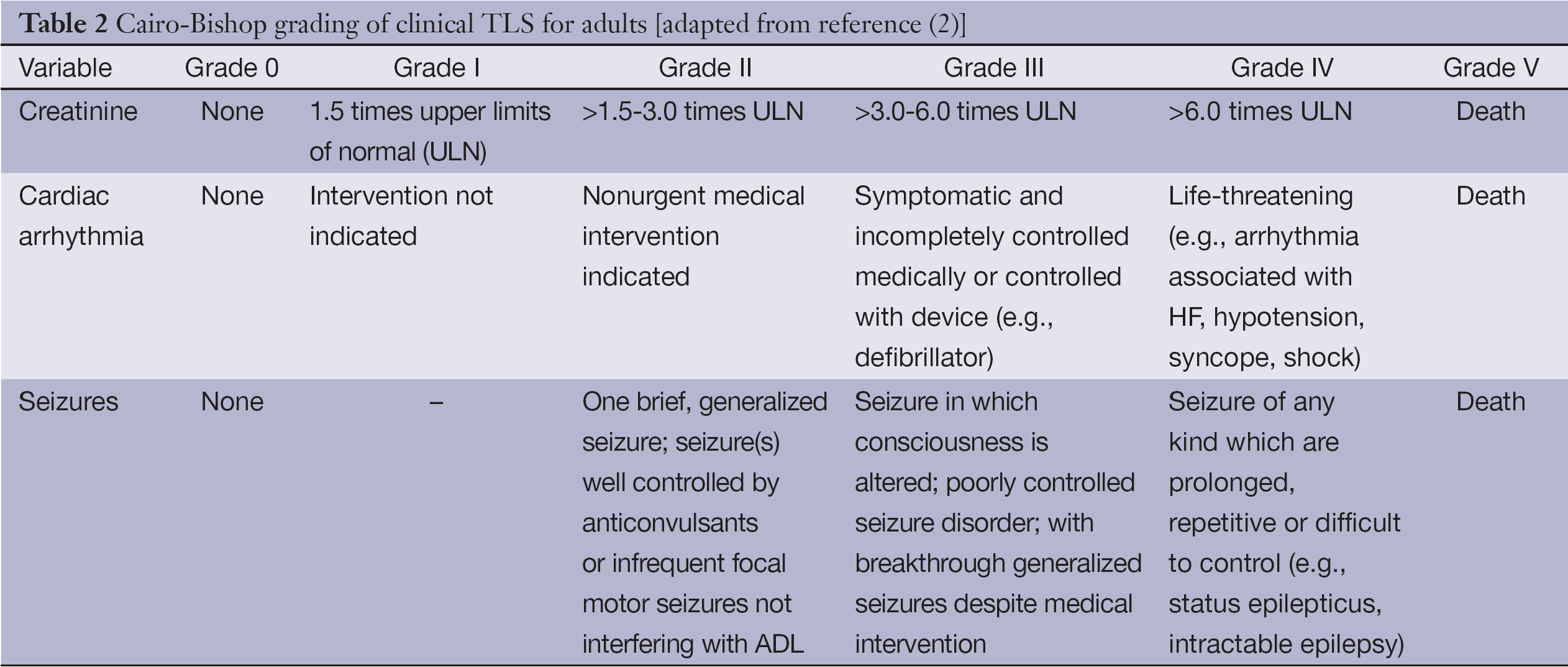





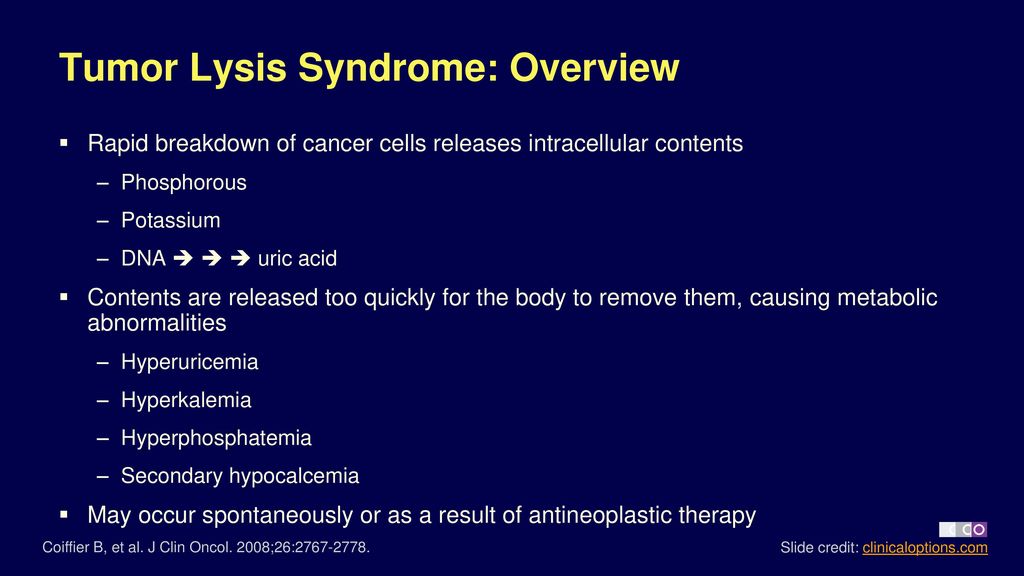


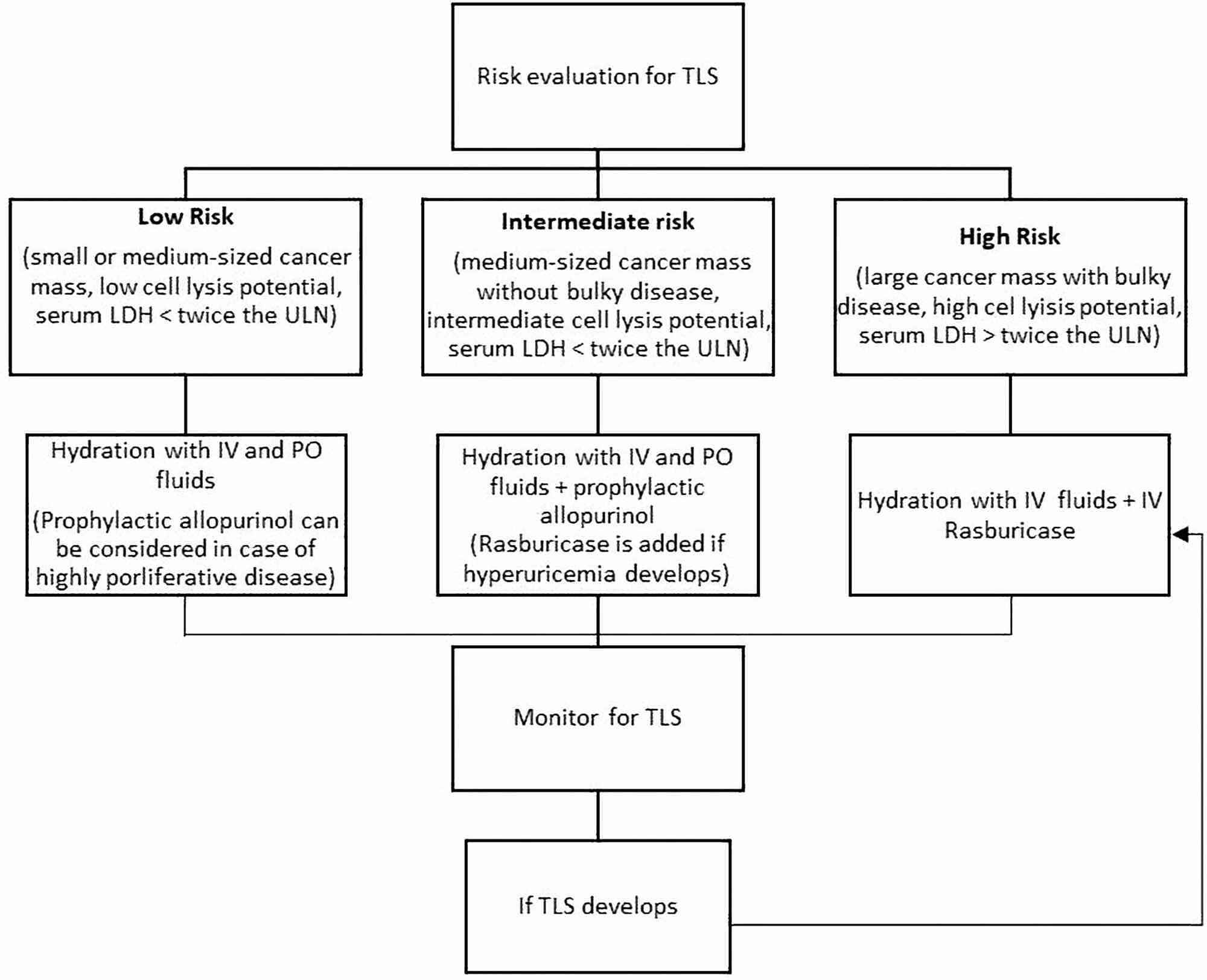
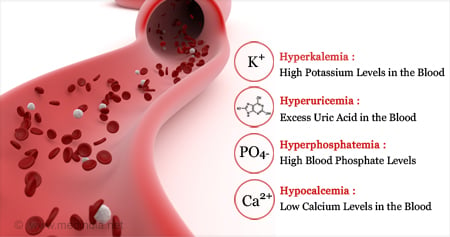
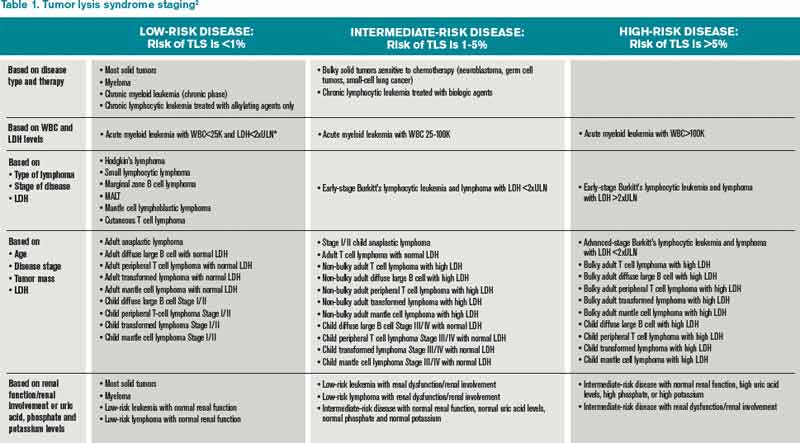
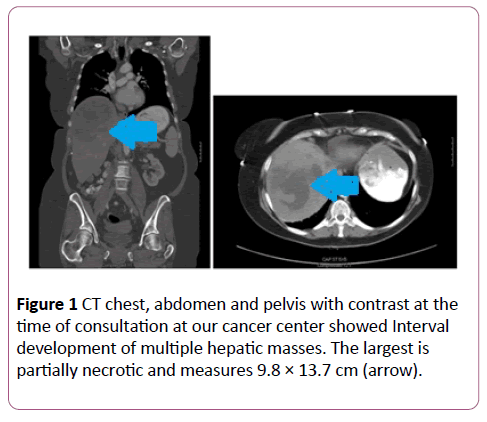
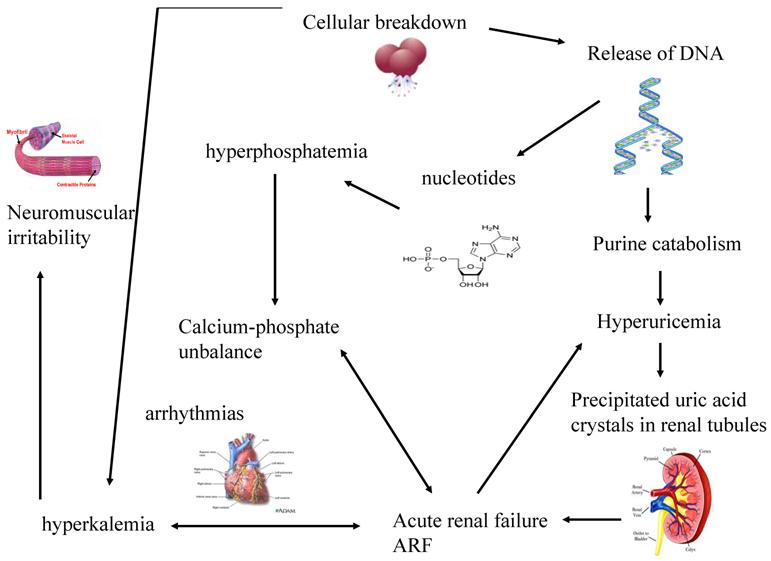

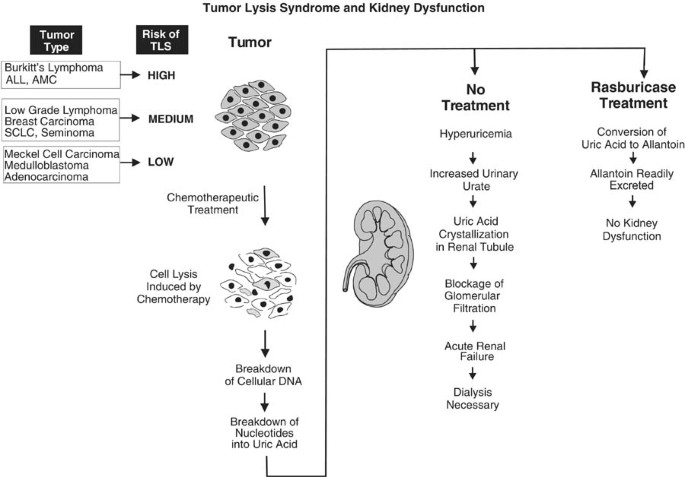

Post a Comment for "Tumor Lysis Syndrome Review"